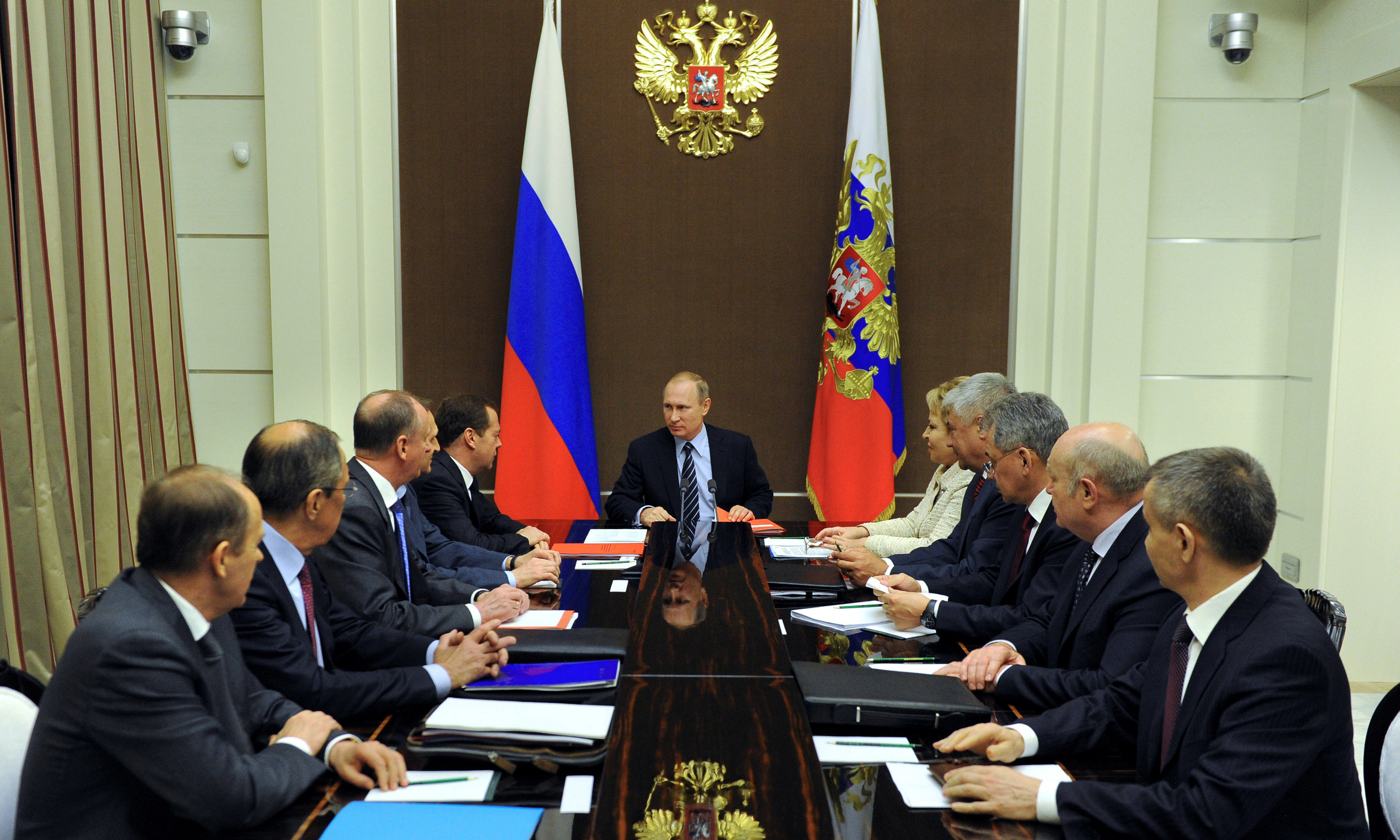MOSCOW/WASHINGTON: President Vladimir Putin on Friday described the development of Nato's US-led missile defense programme as a threat to global security and vowed that Russia will take the necessary steps to maintain a strategic parity.
Putin, speaking at a meeting with military officials, scoffed at US claims that the shield isn't aimed against Russia but instead intended to fend off a missile threat from Iran.
The system includes a site in Romania that became operational on Thursday and a site in northern Poland where US and Polish officials broke ground on Friday for a facility due to be ready in 2018.
“Just a few years ago, our partners in the West, in Europe and the United States, were all speaking in one voice, telling us that they need a missile defense system to protect from missile and nuclear threats from Iran,” Putin said, adding that such a threat has ceased to exist after last year's nuclear deal between Iran and world powers.
“The threat is gone, but the creation of the missile defense system is continuing.”
Putin said Russia “will do everything needed to ensure and preserve the strategic balance, which is the most reliable guarantee from large-scale military conflicts,” but will not get drawn into an arms race.
Earlier this week, Col. Gen. Sergei Karakayev, chief of the Russian military's Strategic Missile Forces, said new types of Russian intercontinental ballistic missiles accelerate faster and are equipped with maneuverable warheads, making them more difficult to intercept.
In another potential response, the military has talked about stationing its state-of-the art Iskander missiles to Russia's westernmost Baltic outpost of Kaliningrad, which borders Nato members Poland and Lithuania.
Last year, the missiles were airlifted there during military maneuvers in a demonstration of their swift deployment capability, but were pulled back to their permanent base after the drills.
The Iskander missiles, which have a range of up to 500 kilometres, would put most of Poland in reach if deployed from the Kaliningrad region.
Dmitry Rogozin, a deputy prime minister in charge of military industries, said after the meeting with Putin that Russia will use technologies that would allow it to “neutralise any threat with minimal resources.” He didn't elaborate.
Russia has long described the US-led missile shield as a top security challenge. Russian military officials have said while the current system doesn't pose a threat to Russia's massive nuclear missile force, it could erode the nation's nuclear deterrent when it grows more powerful in the future.
“They aren't defensive systems, they are part of the US strategic nuclear potential deployed on the periphery, in eastern Europe,” Putin said.
“Now, after the deployment of those missile defense elements, we will have to think about how we can fend off the threats to the Russian Federation's security.”
Obama denounces Russia's 'aggressive' military stance
US President Barack Obama warned Russia about its military build-up in northern Europe as he hosted leaders from five Nordic countries at the White House.
“We are united in our concern about Russia's growing, aggressive military presence and posture in the Baltic-Nordic region,” Obama said at the end of the meeting.
As tensions with Moscow spike over a plethora of issues from aerial military interceptions to Ukraine, Obama looked to make common cause with Russia's near neighbors in Denmark, Iceland, Finland, Sweden and Norway.
Earlier, Obama said the six nations agreed on the need for a European order not based on might.
“We believe that our citizens have the right to live in freedom and security, free from terrorism, and a Europe where smaller nations are not bullied by larger nations.”
Obama put Vladmir Putin's government on notice that, while willing to deescalate tensions, the White House would also be prepared to counter any perceived Russian aggression.
“We will be maintaining ongoing dialogue and seek cooperation with Russia but we also want to make sure that we are prepared and strong and we want to encourage Russia to keep its military activities in full compliance with international obligations,” he said.














































